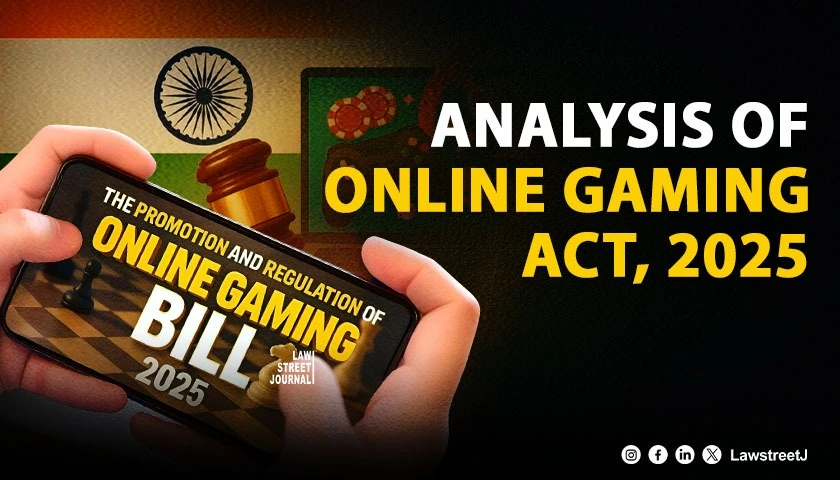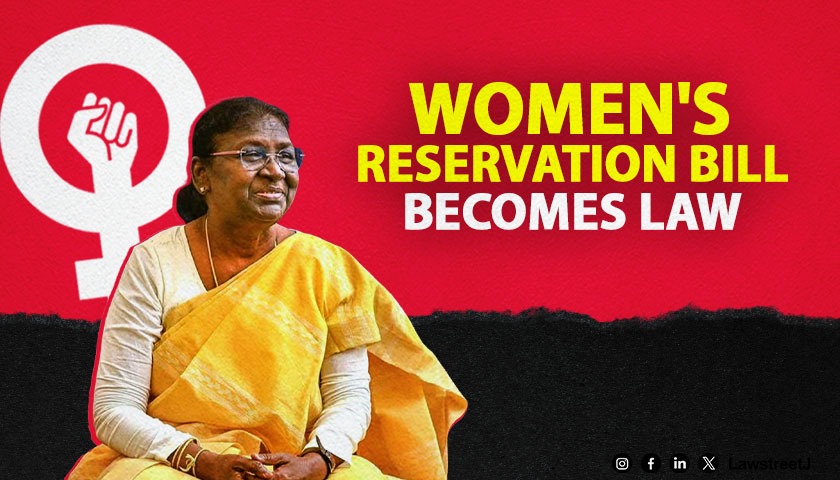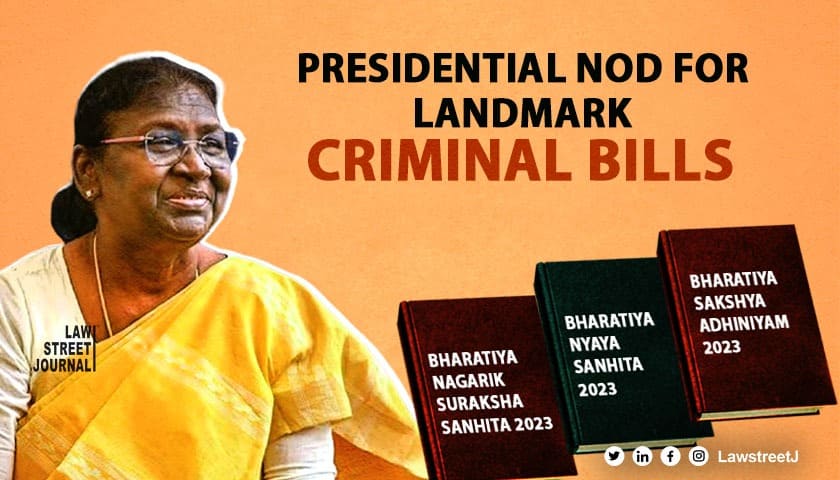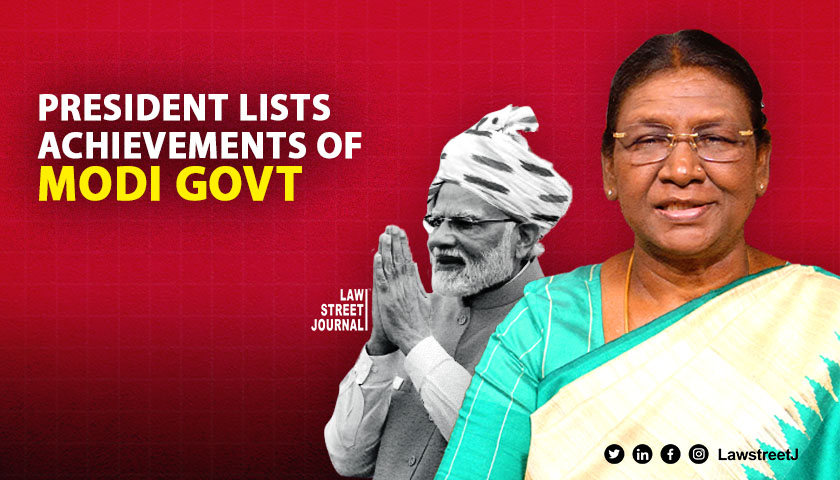New Delhi: The online gaming industry has experienced explosive growth in recent years, driven by the increasing affordability of smartphones and the availability of low-cost data. The sector is currently valued at ₹316 billion (approximately $3.7 billion), projected to grow from ₹33,000 crore in 2023 to ₹66,000 crore by 2028 with a CAGR of approximately 14.5%. Major platforms like Dream11, MPL, and Games24x7 command massive user bases, with real-money gaming encompassing fantasy sports, poker, and rummy accounting for a staggering 86% of the industry’s revenue.
However, this remarkable growth brought both tremendous opportunities and significant challenges. While the sector emerged as a space of creativity and skill development for many, it simultaneously became a trap of addiction, financial losses, and family distress for others. More concerning was the misuse of certain gaming platforms for fraud, money laundering, and activities threatening national security.
Against this backdrop, the Promotion and Regulation of Online Gaming Act, 2025, which received President Droupadi Murmu’s assent, represents a landmark legislation that takes a sledgehammer approach rather than a surgical one. Instead of establishing regulatory oversight, the bill imposes a complete ban on all real-money gaming platforms, regardless of whether they involve skill or chance. Electronics and IT Minister Ashwini Vaishnaw, while moving the Bill, highlighted that online money gaming had become a public health menace, with an estimated 45 crore people losing around ₹20,000 crore annually in online games.
The Act takes an uncompromising stance against online money gaming through comprehensive prohibitions that affect every aspect of the ecosystem. Unlike regulatory approaches that might permit licensed operations under supervision, this legislation imposes a complete ban regardless of whether games involve skill or chance.
Comprehensive Framework for Gaming Regulation
The Act establishes a comprehensive framework that clearly delineates the online gaming ecosystem into three distinct segments: e-sports, online social games, and online money games. This categorization allows for targeted regulation, promoting beneficial gaming activities while prohibiting harmful ones.
E-sports are defined as competitive online games played in multiplayer formats with outcomes determined solely by players’ physical dexterity, mental agility, and strategic thinking. The Act recognizes e-sports as legitimate competitive sports, providing for their recognition under the National Sports Governance Act, 2025. The government commits to establishing training academies, research centers, and incentive schemes to promote e-sports development.
Online social games are categorized as games offered for entertainment, recreation, or skill development purposes without monetary stakes or gambling elements. The Act facilitates their development through registration mechanisms, support platforms, and awareness programs highlighting their positive use for digital literacy and skill development.
Online money games, however, face complete prohibition. These are defined as games involving monetary stakes or deposits with expectations of financial returns, regardless of whether they are based on skill, chance, or both.
Legislative Intent: Understanding the Statement of Objects and Reasons
The Statement of Objects and Reasons provides crucial insights into the legislature’s intent and the comprehensive approach adopted by the Act. The preamble acknowledges that “the unchecked and widespread proliferation of online money games…has led to grave social, economic, and psychological consequences across the country.” It specifically highlights how these platforms “promote compulsive and addictive behaviour, resulting in financial ruin, mental health disorders, and increasing incidents of fraud and exploitation.”
The legislature’s rationale becomes clearer when examining the global context. The Statement notes that “algorithms used in online money games are often opaque and may be designed to manipulate user engagement surreptitiously” and that games “can also be operated by bots or undisclosed agents, undermining fairness and transparency.” This recognition of technological manipulation justifies the Centre’s stance of blanket prohibition rather than attempting regulation of inherently deceptive systems.
Perhaps most significantly, the Statement notes that “in certain cases, these platforms have been linked to illegal activities including money-laundering, financial fraud, the financing of terrorism, and use as messaging platform for terrorist and terrorist organisations, thereby affecting the security and sovereignty of the State.” This national security concern further elevates the issue beyond mere consumer protection to matters of state sovereignty.
It further adds that “considering the deleterious and negative impact of online money games…it is prudent and practical in the interest of general public to completely prohibit the activity of online money gaming, rather than attempts at regulation.” This represents a deliberate policy choice favoring prohibition over regulation based on the assessment that the harms are too severe and pervasive for regulatory mitigation.
Critical Sections: The Architecture of Prohibition
Section 5 – The Core Prohibition (Complete Ban on Online Money Gaming): this section forms the backbone of the legislation, stating: “No person shall offer, aid, abet, induce or otherwise indulge or engage in the offering of online money game and online money gaming service.” This sweeping prohibition covers not just direct operation but any form of assistance or facilitation, creating a comprehensive ecosystem ban that affects operators, facilitators, and enablers alike.
Section 6 further deals with the advertising Prohibition, wherein the Act recognizes that aggressive marketing has been crucial to the proliferation of harmful gaming platforms. This section prohibits any person from making “any advertisement, in any media including electronic means of communication, which directly or indirectly promotes or induces any person to play any online money game.” The inclusion of “indirectly promotes” is particularly significant, as it captures sophisticated marketing techniques that might not explicitly mention gaming but create brand awareness, lifestyle associations, or celebrity endorsements that drive user acquisition.
Section 7, perhaps the most practically effective provision, prohibits “any bank, financial institution, or any other person facilitating financial transactions” from engaging in or facilitating “any transaction or authorisation of funds towards payment for any online money gaming service.” This creates a financial blockade that makes it practically impossible for users to fund their gaming activities or for operators to collect payments.
Also Watch
Additionally, the Act also establishes the institutional framework through Section 8, which provides for the constitution of an Online Gaming Authority, granting the Central Government flexibility to either constitute a new Authority or designate existing authorities.
Section 8(2) further outlines the Authority’s powers, including the critical function under clause (a) to “determine…whether a particular online game is an online money game or otherwise.” This adjudicatory power is essential for implementation, as it provides an official mechanism for game classification and creates legal certainty for operators.
Subsection (3) creates a compliance obligation, requiring “every person offering, organising or facilitating any online game” to comply with Authority directions.
Chapter V of the Act deals with Offences and Penalties, wherein Section 9 provides penalties for contraventions of the law laid down by the Act. Subsection (1) targets the core prohibition, imposing imprisonment up to three years and fines up to ₹1 crore for offering online money gaming services. This primary offense carries the highest penalties, reflecting its central role in the prohibited ecosystem.
Subsection (2) addresses advertising violations with imprisonment up to two years and fines up to ₹50 lakh, recognizing that marketing, while serious, is subsidiary to direct operations.
Subsection (3) penalizes financial facilitation with penalties matching the core prohibition, imprisonment up to three years and fines up to ₹1 crore, acknowledging that financial infrastructure is equally critical to gaming operations.
Subsections (4) and (5) introduce enhanced penalties for repeat offenders, with mandatory minimum sentences of three years for gaming/financial violations and two years for advertising violations, plus enhanced fines. This escalation reflects the legislature’s intent that repeat violations indicate organized criminal activity requiring deterrent sentences.
Section 10 further makes the violations under Sections 5 and 7 cognizable and non-bailable offences. This procedural classification means police can arrest without warrant, and bail becomes a matter of judicial discretion rather than a right vested with the accused by the law.
Section 11 addresses the Corporate Liability through a comprehensive liability framework. Subsection (1) establishes that when companies commit offenses, “every person who…was in charge of, and was responsible to, the company” faces personal liability alongside the corporate entity.
Subsection (2) provides a due diligence defense, requiring proof that the offense occurred “without his knowledge” and that the person “had exercised all due diligence to prevent the commission of such offence.”
Subsection (3) creates enhanced liability for corporate officers whose “consent or connivance” or “neglect” contributed to the offense, while providing protection for independent and non-executive directors not involved in actual decision-making.
Digital Enforcement: Blocking and Investigation Powers
Section 14 empowers authorities to block access to online money gaming services, drawing from Section 69A of the Information Technology Act, 2000. This digital enforcement mechanism can effectively shut down platforms at the infrastructure level, making them inaccessible to Indian users regardless of their physical location.
Section 15 further grants the Central Government power to authorize investigation officers, ensuring specialized enforcement capability for complex digital offenses that may require technical expertise.
Section 16 deals with the search and seizure powers, with subsection (1) authorizing entry into “any place, whether physical or digital” and arrest without warrant. The Explanation clarifies that “any place” includes “computer resource, virtual digital space, electronic records or electronic storage device,” with power to “override any access control or security code” when necessary.
This framework recognizes that online money gaming operations exist primarily in virtual spaces and require specialized enforcement approaches that traditional criminal procedure may not adequately address.
Addressing Broader Social Concerns
The legislation acknowledges the serious social, economic, and psychological consequences of online money gaming. The Act's preamble specifically mentions protection of youth and vulnerable populations from adverse impacts, recognizing that aggressive marketing campaigns, celebrity endorsements, and manipulative design features have amplified the reach of harmful gaming platforms.
The Act further also attempts to address concerns about opaque algorithms, undisclosed bots, and manipulative engagement tactics that undermine fairness and transparency. It also recognizes the connection between certain gaming platforms and illegal activities including financial fraud, money laundering, and terrorism financing, thereby positioning gaming regulation as a matter of national security.
Conclusion
The Promotion and Regulation of Online Gaming Act, 2025 represents a decisive legislative response to what the government perceives as an existential threat to public welfare. With the real-money gaming sector commanding 86% of the industry's ₹316 billion revenue and an estimated 45 crore people at risk of financial losses, the Act’s complete prohibition approach, while controversial, reflects the legislature’s assessment that regulatory half-measures would be inadequate.
The Act’s effectiveness will depend on the implementation of its comprehensive enforcement mechanisms, ranging from financial blockades to digital access restrictions. Its strength lies in a multi-pronged strategy: targeting operators through criminal penalties, choking marketing through advertising bans, and cutting financial lifelines through banking restrictions.
A plea has also been filed in the Karnataka High Court arguing that the Act was enacted without consultation or deliberation, and is contrary to the Respondent’s consistent policy of promoting and encouraging the online skill gaming sector prior to the Impugned Act. The petition contends that this abrupt legislative action has disrupted employment, caused the loss of crores in investment, and jeopardized the livelihood of over two lakh employees across the industry.
It is further argued that, as settled by the Supreme Court, games of skill whether involving money stakes or not are not res extra commercium but a legitimate business activity protected under Article 19(1)(g) of the Constitution. Hence, the State cannot impose a blanket prohibition, and any restrictions must be proportionate and reasonable within the scope of Article 19(6).
However, this “sledgehammer approach” raises questions of proportionality and the economic impact on a sector that has generated substantial employment and attracted significant investment. The complete ban on skill-based real-money gaming, which courts have traditionally distinguished from gambling, may therefore face serious constitutional challenges as being violative of Articles 14, 19(1)(a), 19(1)(g), and 21.
Ultimately, the Act’s test will be whether its blanket prohibition proves more effective than nuanced regulation in achieving its stated objectives of protecting vulnerable populations while preserving space for legitimate gaming innovation. By opting for prohibition over regulation, the legislature has prioritized immediate harm prevention over industry accommodation, marking a significant shift in India’s approach to the digital economy. This represents not just gaming regulation, but a potential template for how India may address other digital platforms deemed harmful to public welfare, signaling a more interventionist model of technology governance in areas affecting vulnerable communities.





![President approves controversial Act redefining appointment of Election Commissioners, defying SC's earlier mandate [Read Act]](/secure/uploads/2023/12/lj_9500_WhatsApp_Image_2023-12-29_at_5.53.48_PM.jpeg)






Hari Puttar Sep 04, 2025
Badhiya likhe ho bhai.. convocation me rukk jao please